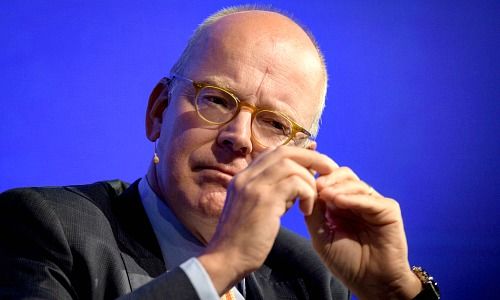UBS: Martin Blessing's Priorities
Against this backdrop, Blessing is challenged to improve the UBS client’s experience, in a bid to lure additional business and volume – which could give the bank an edge in the industry-wide slowdown (as described in point 2).
7. High Noon in Asia
The tectonic shift of technological and economic development from west to east in recent years won’t go away. Tokio, Hong Kong and Singapore will be a huge part of Blessing’s job: if UBS had originally largely targeted the highest caste of wealthy clients – ultra-high net worth – the Swiss bank has opened up to the mere affluent in Asia. In Taiwan, which boasts healthy growth rates, clients can get in the door at UBS for less than 1 million Swiss francs. Is it good for UBS’ positioning in the wider region? Blessing will have to decide.
Is Blessing the Right Person?
Blessing to run UBS' private bank fits right in with the Swiss bank's traditional hiring policies. And the German banker has an enormously rich network of wealth individuals and corporations. In his 15 months as Swiss boss, Blessing made a good initial impression as a leader who understood the importance of digitization and could keep a lid on spending.
But in view of the structural changes facing the wealth industry, Blessing's appointment raises some questions. He is a representative of the old world of banking, at home in the highly politicized world of big corporations. As Commerzbank CEO, Blessing's mettle as a crisis manager was tested, but he left before he could prove himself.
His appointment as boss of 3 trillion Swiss francs is emblematic of how UBS works: the Swiss bank reached the decision early in the summer, and spent months orchestrating and then flawlessly executing what it sees as the logical decision to replace Zeltner. The bank isn't the type for a bigger, bolder move – such as taking on a technology expert for a much-needed jolt of energy.
- << Back
- Page 3 of 3




























